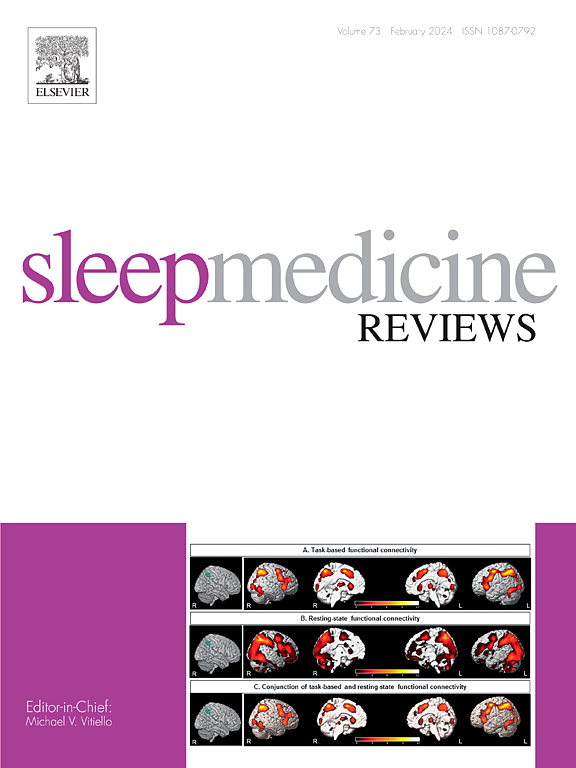睡眠缺失对核心执行功能的损害:一般和特定任务的影响
IF 9.7
1区 医学
Q1 CLINICAL NEUROLOGY
引用次数: 0
摘要
这项荟萃分析量化了睡眠缺失(包括完全睡眠剥夺和部分睡眠限制)对执行功能核心组成部分的影响:工作记忆、抑制控制和认知灵活性。通过对Scopus、Web of Science和PubMed的系统搜索,确定了79篇相关出版物。使用随机效应模型,在每个任务类别中分别估计反应时间和准确性指标的综合效应大小。除认知灵活性外,所有反应时间指标在睡眠不足后都显著增加,效应大小中等至接近于大。准确度指标分析显示,在认知灵活性的任务转换和任务重复表现以及工作记忆维持方面存在中等到较大的效应,而在解决干扰抑制方面存在较小的效应。这些发现强调了对所有执行功能组成部分的普遍损害,并表明执行功能受损的共同因素可能是睡眠不足相关恶化的基础。此外,反应时间和准确性效应大小之间的差异表明,睡眠不足后,干扰抑制和认知灵活性之间的速度-准确性权衡是相反的。这项研究为理解睡眠不足如何影响执行功能的不同组成部分提供了必要的证据,强调了从全面的角度探索睡眠不足相关损伤的重要性。本文章由计算机程序翻译,如有差异,请以英文原文为准。
The impairments of sleep loss on core executive functions: General and task-specific effects
This meta-analysis quantified the impact of sleep loss (including both total sleep deprivation and partial sleep restriction) on core components of executive function: working memory, inhibitory control, and cognitive flexibility. A systematic search of Scopus, Web of Science, and PubMed identified 79 relevant publications. Using random-effects models, pooled effect sizes for reaction time and accuracy metrics were estimated separately within each task category. All reaction time metrics, except for cognitive flexibility, increased significantly following sleep loss, with medium to near-large effect sizes. Analysis of accuracy metrics revealed medium to large effect sizes on task-switching and task-repeat performance of cognitive flexibility, as well as on working memory maintenance, whereas a small effect size was observed on resolving interference inhibition. These findings highlight pervasive damage to all executive function components and suggest that the impaired common factor of executive functions may underpin sleep loss–related deterioration. Furthermore, the discrepancies between reaction time and accuracy effect sizes indicate opposite speed-accuracy trade-offs following sleep loss between interference inhibition and cognitive flexibility. This study provides essential evidence for understanding how sleep loss affects different components of executive function, emphasizing the importance of exploring sleep loss–related impairments from a comprehensive perspective.
求助全文
通过发布文献求助,成功后即可免费获取论文全文。
去求助
来源期刊

Sleep Medicine Reviews
医学-临床神经学
CiteScore
20.10
自引率
3.80%
发文量
107
期刊介绍:
Sleep Medicine Reviews offers global coverage of sleep disorders, exploring their origins, diagnosis, treatment, and implications for related conditions at both individual and public health levels.
Articles comprehensively review clinical information from peer-reviewed journals across various disciplines in sleep medicine, encompassing pulmonology, psychiatry, psychology, physiology, otolaryngology, pediatrics, geriatrics, cardiology, dentistry, nursing, neurology, and general medicine.
The journal features narrative reviews, systematic reviews, and editorials addressing areas of controversy, debate, and future research within the field.
 求助内容:
求助内容: 应助结果提醒方式:
应助结果提醒方式:


